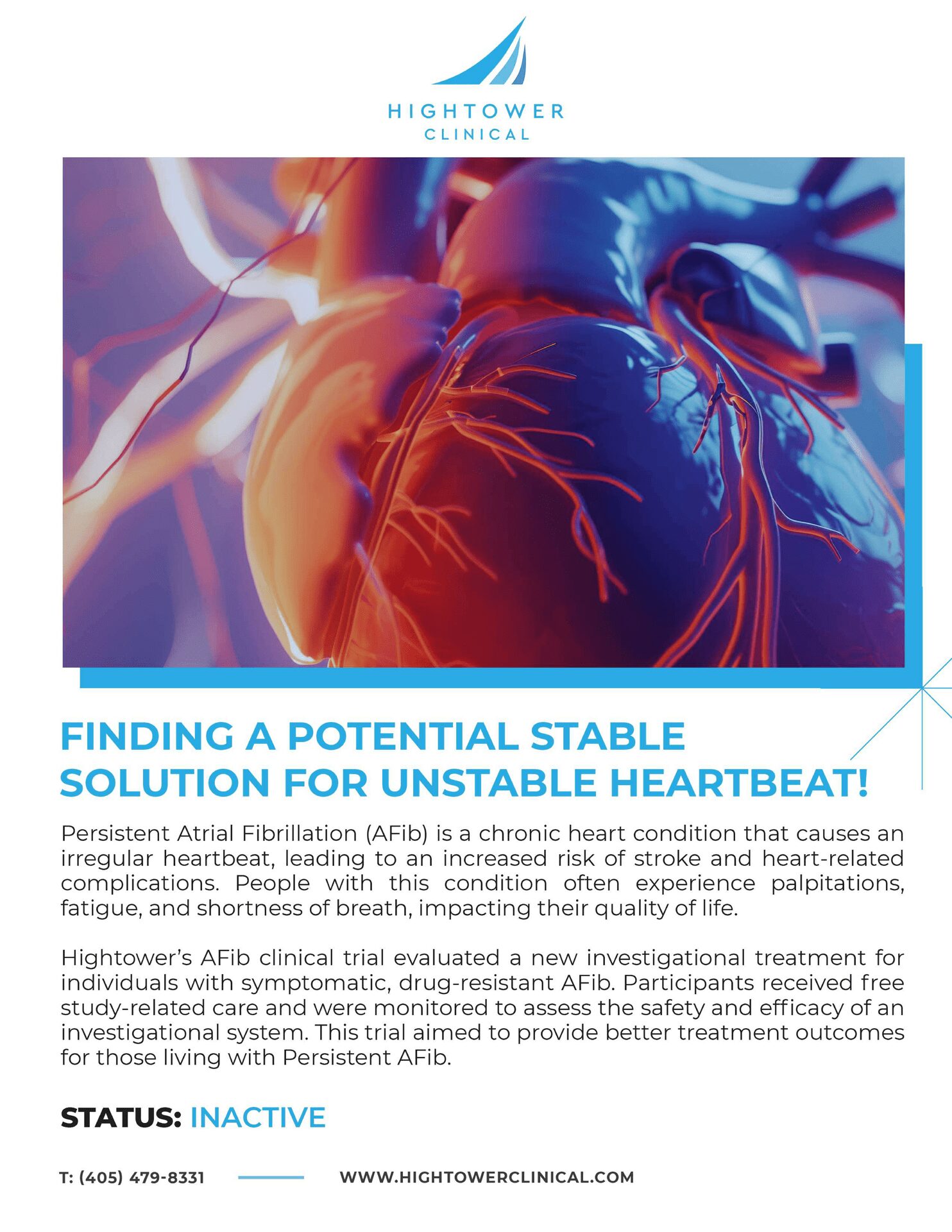Persistent Atrial Fibrillation can sometimes stop on its own, but in many cases, it requires treatment to control the heart rhythm. For some individuals, it can be a lifelong condition that needs ongoing management.
About Persistent Atrial Fibrillation (AFib)
Persistent Atrial Fibrillation is a heart rhythm disorder affecting millions, causing the heart to beat irregularly. If left unmanaged, it can increase the risk of stroke, heart failure, and other complications. While advancements in medical technology have improved treatments, there remains a need for safer, more effective solutions, particularly for those with drug-resistant AFib.
About the Volt AFib Clinical Trial
Hightower Clinical recently completed a study to evaluate a novel system for treating Persistent AFib. Participants were monitored closely to assess the safety and effectiveness of this investigational device. The trial offered free study-related treatment, with the goal of improving outcomes for individuals suffering from symptomatic, recurrent, drug-resistant AFib.
Current Status
Not Recruiting
Study Count
01
Frequently Asked Questions
What Triggers an Episode of Persistent Atrial Fibrillation?
Common triggers for AFib include stress, caffeine, alcohol, certain medications, dehydration, or sleep deprivation. It’s important to identify and avoid your specific triggers.
How Is Persistent Atrial Fibrillation Diagnosed?
AFib is typically diagnosed through an electrocardiogram (ECG or EKG), a simple test that measures the electrical activity of the heart. Sometimes, additional tests like a Holter monitor or echocardiogram are needed for a more thorough evaluation.




